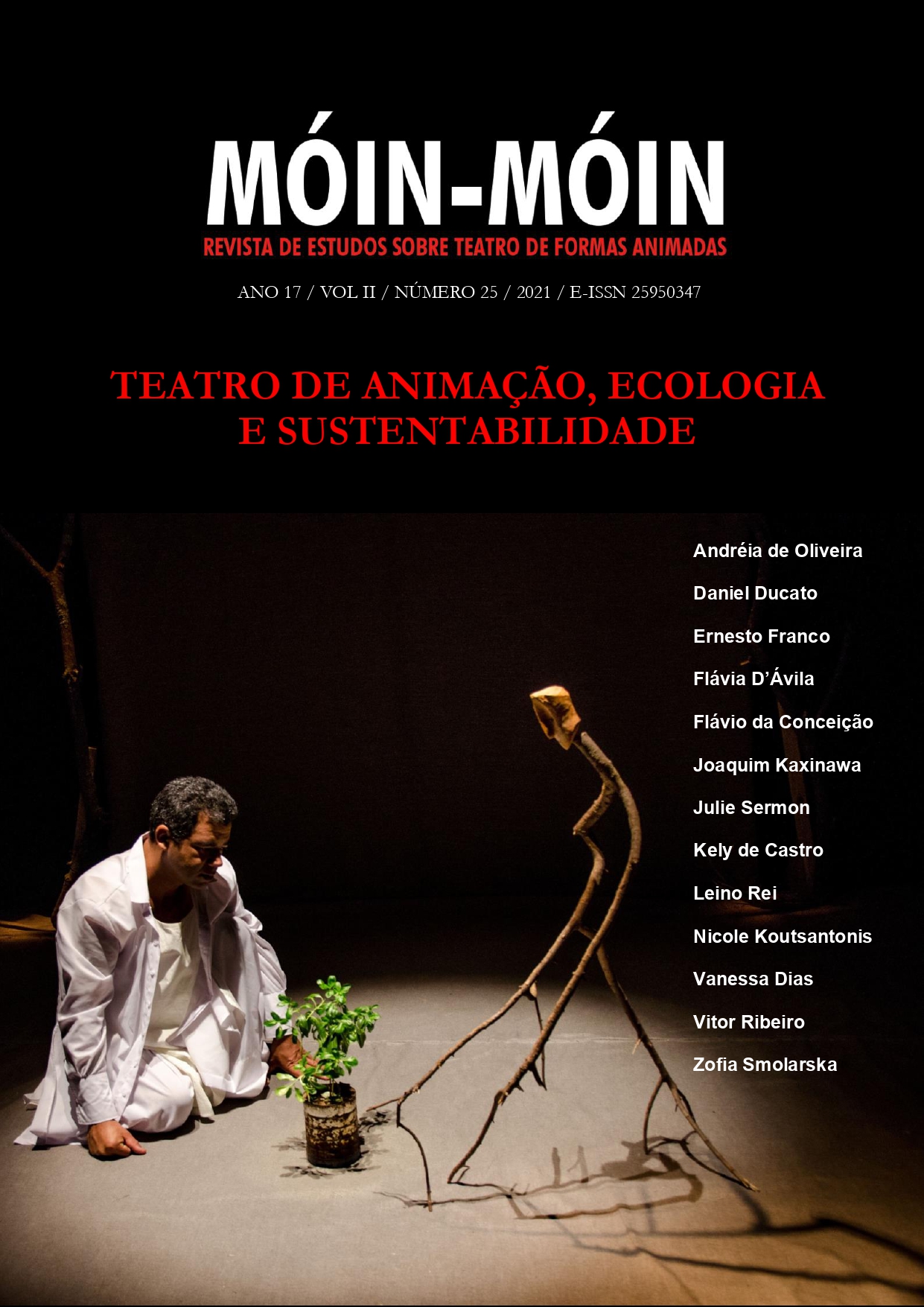Towards Sustainable Change. Craftsmanship in Polish Puppet Theatres: An Ecosophical Perspective
DOI:
https://doi.org/10.5965/2595034702252021139Keywords:
Polish Puppet Theatre, craftsmen, sustainabilityAbstract
The main aim of the paper is to present and explain the complexity of the deep but hidden conflict between the ‘top’ and the ‘bottom’ that is currently taking place in many theatre institutions in Poland, including puppet theatres. Since 1989, Polish repertory theatres have been continually changing from the old, highly hierarchical Fordist mode of production to the new, flexible post-Fordist mode, which is characteristic for cognitive capitalism and alternative, neo-avant-garde theatre. These organisational changes and some new aesthetic trends are leading to the extinction of theatre craft, as the work of craftsmen is increasingly outsourced or replaced by ready-made objects. This paper presents the results of qualitative field research conducted at six Polish puppet theatres, each with a different range, including interviews with craftsmen, in order to examine the economical, technological and aesthetic decisions that cause dysfunctions and exacerbate the dying-off of backstage theatre professions.
Downloads
References
BAL. Teatr Wierszalin zadziwił Turlajgroszkiem. Życie Warszawy, 23 dez. 1993.
BAL. Rynek pracownika to mit. 2016. Disponível em: http://extra.innpoland.pl/rynek- pracownika-to-mit. Acesso em: 03 jan. 2017.
COOLS, G., GIELEN, P. (ed.) The Ethics of Art. Ecological Turns in the Performing Arts, Amsterdam: Valiz, 2014.
FLORIDA, R. The Rise of the Creative Class: And How it’s transforming work, leisure, community and quotidian life. Nova York: Perseus Book Group, 2002.
GABLIK, S. The Reenchantment of Art. Nova York: Thames & Hudson, 1992.
GLEICK, F. The Acceleration of Just About Everything. Nova York: Pantheon, 1999.
GÓRLIKOWSKI, M. ‘Andrzej Leder: Jeśli klasa średnia jest za bardzo skupiona na sobie, to dos Budap za to po uszach’. Gazeta Wyborcza, vol 307, 23 dez. 2016.
KONECKI, K. Studia z metodologii badań jakościowych. Teoria ugruntowana. Warszawa: PWN, 2000.
KUNST, B. Artist at Work, Proximity of Art and Capitalism. Winchester / Washington: John Hunt Publishing, 2015.
KUUSSAARI, M. et al. Extinction debt: a challenge for biodiversity conservation. Trends in Ecology & Evolution, vol. 24, n. 10. Disponível em: http://www.cell.com/trends/ecology-evolution/abstract/S0169-5347(09)00191-8 . Acesso em: 03 jan. 2017.
SENNET, R. The Craftsmen. New Haven, CT: Yale University Press, 2008.
STOCKI, R. Patologie organizacyjne - diagnoza i interwencje. Cracóvia: Oficyna Ekonomiczna, 2005.
Downloads
Published
How to Cite
Issue
Section
License
Copyright (c) 2021 Móin-Móin Magazine - Studies in the Art of Puppetry

This work is licensed under a Creative Commons Attribution 4.0 International License.
The readers are free to transfer, print and use the articles published in the Magazine, as long as there’s explicit mention to the author(s) and to Móin-Móin Magazine - Studies in Theater of Animated Forms and there are no changes on the original work. Any other use of the texts needs to be approved by the author(s) and the Magazine. In submitting an article to Móin-Móin Magazine - Studies in Theater of Animated Forms and have it approved, the author(s) agree to give away, without payments, the following rights to the Magazine: first publishing rights and the license for the Magazine to redistribute this article and its metadata to index and reference services that the editors consider appropriate.
The articles whose author(s) are identified represent the author’s point of view and not the official position of Móin-Móin Magazine. The author(s) commit to always mention the publication in the following way when publishing work in reference to the article published in Móin-Móin Magazine:
“This article was originally published by Móin-Móin Magazine volume (insert the volume), number (insert the number), in the year of (insert year) and can be accessed on: http://www.revistas.udesc.br/index.php/móin"
Plagiarism in any way constitutes an unethical publishing behavior and is unacceptable. Móin-Móin Magazine holds the right to use software or other plagiarism tracking methods to scan the submitted works.
![]()
This journal uses Attribution-NonCommercial 4.0 International– (CC BY NC 4.0).






